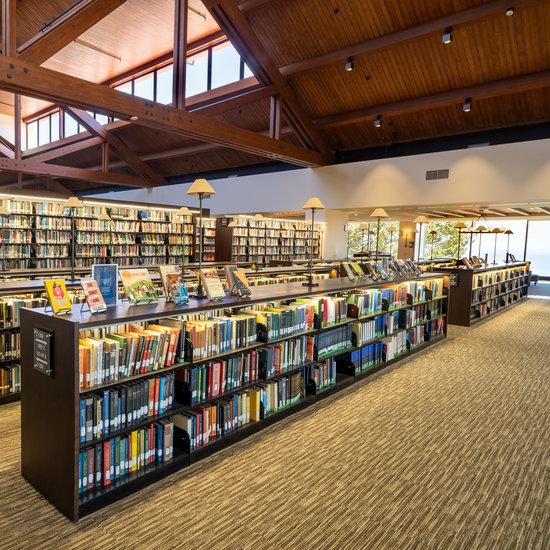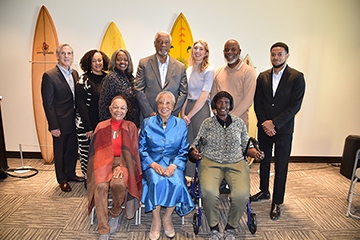Pepperdine Libraries Launches New Project Preserving the History of South Los Angeles

In December 2023, Pepperdine Libraries officially launched “Preserving the History of South Los Angeles,” an initiative to preserve the voices and lived experiences of the South Los Angeles Black community. With support from California Humanities, a nonprofit organization that funds humanities-based projects and programs to help tell the stories of California, the project features recorded oral history interviews from elders in the community who come from a Christian background, as well as many that have connections to Pepperdine University or its original George Pepperdine College campus.
The Libraries hosted a luncheon in Payson Library on December 7, 2023, with participants and their families, University stakeholders, faculty, and staff to celebrate the public launch of the project. The event featured Mark Roosa, dean of Pepperdine Libraries, and project team members Bailey Berry, librarian for digital publishing, curation, and conversion; Stanley Talbert (’12), assistant professor of religion; and Tabatha Jones Jolivet (‘97, ’03), associate professor in the School of Behavioral and Applied Sciences at Azusa Pacific University, who shared insights, a highlight video of the interviews, and a link to the project website with completed oral histories.
 “Pepperdine University, founded in 1937, planted its roots in the dynamic landscape
of South Los Angeles with a visionary goal—providing accessible, faith-based education,”
said Roosa during his opening remarks at the luncheon. “George Pepperdine, a committed
Christian entrepreneur, believed in the transformative power of education and sought
to establish a university deeply rooted in the local community. South Los Angeles,
renowned for its cultural diversity, resilience, and vibrant energy, served as the
ideal setting for Pepperdine’s vision.”
“Pepperdine University, founded in 1937, planted its roots in the dynamic landscape
of South Los Angeles with a visionary goal—providing accessible, faith-based education,”
said Roosa during his opening remarks at the luncheon. “George Pepperdine, a committed
Christian entrepreneur, believed in the transformative power of education and sought
to establish a university deeply rooted in the local community. South Los Angeles,
renowned for its cultural diversity, resilience, and vibrant energy, served as the
ideal setting for Pepperdine’s vision.”
Each narrator featured in the project has spent their life nurturing and building community across many neighborhoods in South Los Angeles. The original George Pepperdine College campus was located in the Vermont Knolls neighborhood of South Los Angeles from 1937–1981, a period of time that coincides with several significant historical events in the area, including the growth and flourishing of the Black community following the Great Migration. Through preserving the voices, memories, and lived experiences of the longtime residents of South Los Angeles, the project aims to share this history with wider audiences, including community members, educators, students, scholars, and the public at large.
“In this work we have also sharpened our sights on fostering a culture of belonging on each of our campuses around Los Angeles and around the world.” Roosa adds, “In an age where the historic past often seems like a small footnote in the clamor of the moment, we are ever more driven to be the guardians of memory, so that our children and our children’s children might have access to what came before them.”